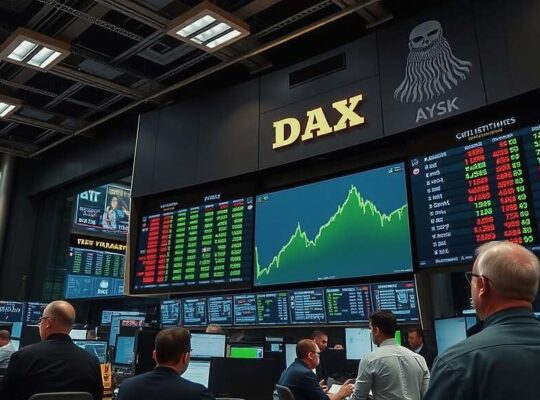A subdued trading day characterized the German DAX index on Wednesday, reflecting broader market anxieties surrounding impending economic data releases and the ongoing uncertainty fueled by the US government shutdown. The benchmark index remained largely static, fluctuating around 24,245 points by midday, a marginal decrease of 0.1% compared to the previous day’s close. Mercedes-Benz, Deutsche Bank and BMW led the gains, while Adidas, SAP and Zalando lagged behind.
Market analyst Andreas Lipkow attributed the lack of dynamism to an anticipated overload of information, particularly emphasizing the forthcoming Federal Reserve press conference. “The market participants have been navigating in a sort of blind flight for some time now” he observed, highlighting the critical shortage of macro-economic data emanating from the United States due to the ongoing government impasse. This data vacuum has significantly hampered investor confidence and contributed to the cautious trading posture.
The prevailing lack of clarity surrounding US economic indicators is prompting a deeply apprehensive environment amongst investors, preventing any significant upward momentum. Lipkow suggested the market is likely to only truly begin generating dynamic movement after 7:30 PM CET and demonstrating its full potential for price fluctuations only in the subsequent trading day.
The euro also weakened slightly against the dollar, trading at $1.1641, a reflection of the broader cautious sentiment surrounding the Eurozone’s economic outlook in the context of global uncertainties. Meanwhile, the price of Brent crude oil rose to $64.65 per barrel, indicating a continued upward pressure on energy costs – though this rise remains contained by the overarching market hesitancy.
The situation underscores the vulnerability of European markets to external factors, particularly the performance and data releases of the world’s largest economy. The US government shutdown, beyond its immediate domestic impact, is demonstrably creating a ripple effect of instability in global financial markets, demanding a critical evaluation of risk mitigation strategies and a renewed focus on the potentially delayed recovery of economic progress.












